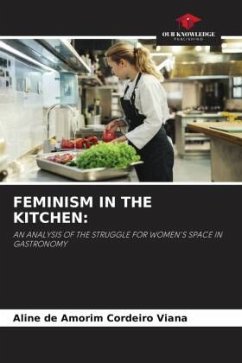Popular sayings such as "a woman's place is in the kitchen" associate women with the responsibility for the activity of cooking, and are used as a way to silence them. Transmitted from generation to generation, such sayings are ways to propagate the machismo present in all social institutions. The present work seeks to analyze the experiences of women in gastronomy, linking current situations with social issues historically portrayed, in an attempt to understand why gastronomy is still a mostly male environment. The methodology used to write this work will seek support, mainly, in the bibliographies of Saffioti and Kergoat and Hirata, in their theorizations about social relations of sex, sexual division of labor, the concept of gender and the concept of patriarchy, having as an objective to reflect about the work in the spaces of the kitchens, from the perspective of gender, considering gender as an analytical category and having as a theoretical reference feminist studies about the relation of women with work.
Bitte wählen Sie Ihr Anliegen aus.
Rechnungen
Retourenschein anfordern
Bestellstatus
Storno








